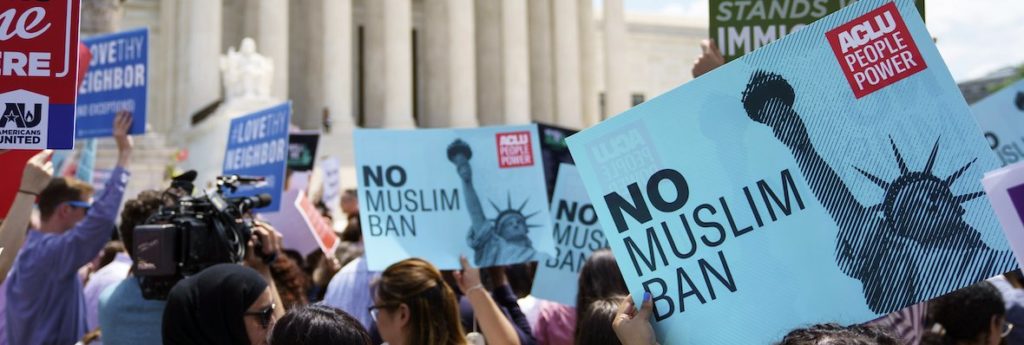A federal appeals court appeared skeptical Tuesday as civil rights groups sought to allow legal challenges to Donald Trump’s ban on travellers from predominantly Muslim countries to move forward despite a 2018 US Supreme Court ruling upholding the ban. The ban, put in place just a week after Trump took office in January 2017, sparked an international outcry from Muslim advocates and others who said it was rooted in religious bias.
Now in its third iteration, the ban applies to travellers from Iran, Libya, Somalia, Syria and Yemen. It also affects two non-Muslim countries, keeping out travellers from North Korea and some Venezuelan government officials and their families.
A three-judge panel of the 4th US Circuit Court of Appeals in Richmond is being asked to decide whether a federal judge in Maryland made a mistake when he refused to dismiss three lawsuits after the Supreme Court found in a separate case that the travel ban has a “legitimate grounding in national security concerns.”
Mark Mosier, an attorney representing US citizens and permanent residents whose relatives have been unable to enter the US because of the ban, asked the court to allow the legal challenges to proceed in court.
Mosier argued that the Supreme Court rejected a preliminary injunction to block the travel ban, but did not decide the merits of the constitutional claims made in the lawsuits. The plaintiffs argue that the travel ban violates the First Amendment’s Establishment Clause, which prohibits the government from favouring one religion over another.
Mosier said the lawsuits should be allowed to proceed so the plaintiffs can gather evidence on their claim that the travel ban is rooted in anti-Muslim bias and that the Trump administration’s claim of national security concerns is a pretext for the policy.
But the judges — all nominated by Republican presidents — repeatedly questioned Mosier about the Supreme Court’s finding in a Hawaii case that there is a plausible rationale to support the travel ban.
Judge Julius Richardson cited the Supreme Court’s rejection of claims that Trump’s own tweets and statements should be considered to show that the policy is rooted only in anti-Muslim bias. During the presidential campaign, Trump called for “a complete and total shutdown of Muslims entering the United States.”

